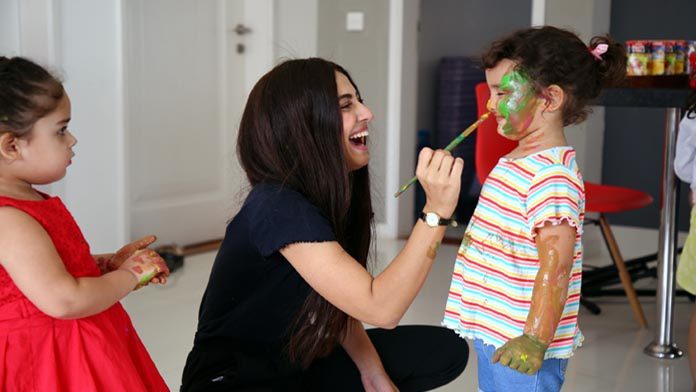Let me start with a scenario here and I am sure that readers have often witnessed this. As soon as a parent sees their child crying, they immediately handover smartphones to them, switch on the tv, or if their child is old enough they’re told to go away and play with the playstation. True, electronic accessories may have made life easy for parents in their quest to distract their child during the most testing times but have we all ever wondered what the cost of these gadgets might really be?
Man is a social animal; we are a species that was made to interact that’s why cultivating healthy social skills early on is really important for kids of all ages. The social skills are the skills used every day to interact and communicate with others – including verbal and non-verbal communication, such as speech, gesture, facial expression and body language. Children get the opportunity to learn communication skills through formal (schools) and informal (home) socialization. However, recently our younger lot has been spending ample time indoors glued to screens, with lesser human interactions. Obviously challenges related to social interactions with and between children have and will continue to become pretty common unless dealt with properly.
Experts say that with children more interested in watching tv and mobile screens rather than being involved in activities which require human interaction, there are high chances that there communication skills are getting adversely impacted – which would be noticeable in later years.
Sofia Bilgrami, an expert on child development and head of STOIS, said that communication skills are crucial in making and sustaining friendships. “Social interactions don’t always run smoothly and children need to be able to implement appropriate strategies, it teaches them how to carry oneself during a conflict and how to resolve it,” she said.
On the other hand, while majority of parents from Pakistan agree with all the above observations, however, the lack of quality parks, local libraries or even community centres in Pakistan, a parent is left with no option but to keep their child indoors. This might not be the best of conclusions as the child doesn’t necessarily get the human interaction he/she needs especially during early developmental years.
Bilgrami, nonetheless, believes that the parents despite all challenges must give their best to inculcate social skills in children and the best possible way to do it is through ‘smart and effective play’. “Parents should ensure that the child plays both indoors and outdoors because it helps build joint attention and instils the values of sharing and cooperation,” she reiterated.
Sofia also reinforces the importance of the child knowing and becoming familiar to social stories so that they can identify important cues, understand rules, routines and even abstract concepts!
In light of the above observations, I think parents should question themselves whenever they handover electronic accessories to children compromising their child’s social skills. It may be just a little distraction but for a child it has the propensity to gradually become a solid habit of being just focused on the screen rather than having human interactions. It’s important for a child to have impactful social skills so that they can express themselves with ease , convey their feelings in an effective manner and grow to become confident members of society.

















